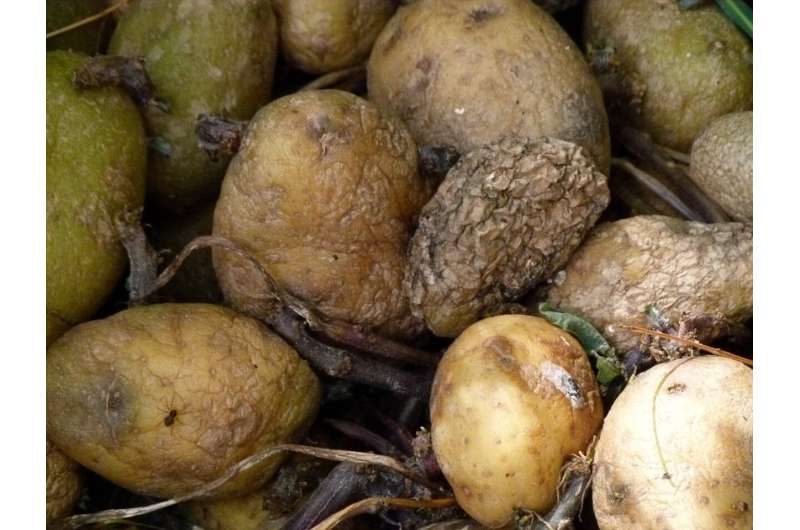This article has been reviewed according to Science X's editorial process and policies. Editors have highlighted the following attributes while ensuring the content's credibility:
fact-checked
proofread
Natural toxins in food: Many people are not aware of the health risks

Many people are concerned about residues of chemicals, contaminants or microplastics in their food. However, it is less well known that many foods also contain toxins of completely natural origin. These are often chemical compounds that plants use to ward off predators such as insects or microorganisms. These substances are found in beans and potatoes, for example, and can pose potential health risks.
However, according to a recent representative survey by the German Federal Institute for Risk Assessment (BfR), only just under half of the respondents (47%) were even aware of plant toxic substances. The BfR Consumer Monitor Special on naturally occurring plant toxins also revealed that this risk worries 27%.
In contrast, residues in food (e.g. from plant protection products) and contaminants, i.e. substances that are not intentionally added to food (e.g. heavy metals), cause concern for 63 and 62% of respondents respectively.
"The survey results make it clear that risks of natural origin tend to be underestimated, while risks of synthetic origin tend to be overestimated," says BfR President Professor Andreas Hensel."
Raw plant-based foods are consumed frequently by 34%, occasionally or rarely by 45% and very rarely or not at all by 19%.
Which foods with naturally occurring plant toxins do you already know? If this question is asked openly and without pre-selection, potatoes are named first (15%), followed by tomatoes, raw beans (9% each) and mushrooms (5%).
More than half of the respondents (53%) feel poorly informed about plant toxins in food, while only 8% feel well informed.
Residues are residual amounts of substances that are used in the production of food. For example, residues can remain in fruit, vegetables or cereals even if plant protection products are used correctly.
Contaminants, on the other hand, are undesirable substances that unintentionally end up in food. They can occur naturally in the environment, arise during the processing of raw materials into food or be released into the environment as a result of human activities. Contaminants are undesirable because they can be harmful to health under certain circumstances.
The study also shed light on the related topic of "moldy food." Here, too, there is a clear need for education. Even small amounts of mold toxins can be harmful to the health of humans and animals. Moldy jam, for example, should therefore always be disposed of completely.
Nevertheless, 25% of respondents stated that they only remove the moldy part. Even in the case of moldy berries, affected and surrounding fruit should no longer be eaten. Only 60% adhere to this rule.
More information: Consumer monitor

















